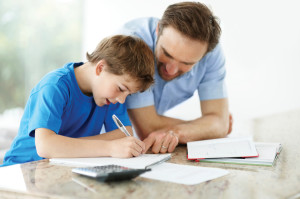Several studies show that a consistently open line of communication between a student’s parents and their teachers can greatly benefit their learning experience and overall academic success. A large percentage (nearly 80%) of parents consider themselves to be very involved with their child’s education. This is to be somewhat expected in the age of technology we live in today with school websites and email correspondence making it easier than ever to get in touch with teachers. Some experts feel that we are underutilizing the tools we have, however, given the level of communication we have access to. Results are showing that it’s not so much about the quantity of communication you have with teachers, but more about the quality. These 3 practices will help you more effectively communicate with your kid’s teachers to help achieve the best results for your child’s success.
Be Proactive
If a student has problems in the classroom (whether behavioral or academic), many parents don’t hear about it until it’s already considered a “problem.” A bit of proactivity from the parental front can do wonders in the day to day performance of your child’s learning experience and foresee a potential issue before it becomes a disruption in the classroom. Weekly email correspondence with teachers can help you stay on top of your child’s education and understand your child’s specific needs outside the classroom to set them up for success. A consistently open line of communication with teachers lets you know where your child is struggling, where they are excelling, and what actions you can take to aid both your child and their teacher in class. Seek out progress reports (both in academics and conduct) so you know where your child stands and what their strengths and weaknesses are. A full understanding of your child’s schooling situation and performance is a vital step in creating an environment in which your child strives to achieve academic excellence.
Recognize Success
One common problem with parent-teacher communication is that parents often only hear about the negatives when it comes to their child’s classroom performance. Be sure to seek out positive feedback from teachers, and hold it in the same regard as negative feedback. Negative feedback is imperative because it allows you to work on correcting the problem with your child outside the classroom, but positive feedback is just as vitally important as it gives you the opportunity to celebrate success with your child. Discussions about school should not be reserved exclusively for when problems arise. Rather, a full well rounded approach to discussing the good, the bad and the ugly of school stimuli and performance. Praising your child for academic success also provides them incentive for consistent academic achievement.
Be Receptive
When a student is consistently struggling, it is important to listen to the teacher’s perspective on the problem. Teachers spend consistent time with your child, and the way your student performs in school is a huge part of their life. Be sure not to shut your teacher out of the equation by writing off what they have to say. They have a different perspective on and relationship with your child than you do, and it is crucial to hear every side of the problem when problems arise, either with academics or conduct. Collaborating with teachers on effective solutions is often the most surefire way to help your child find success and happiness in the classroom.
All in all, the main focus here is to take an active role in your child’s education. Teachers are always available to answer questions you may have. Keep in regular contact with them, attend conferences, and do anything you can to get involved in your child’s learning experience. The more integral a role you play in their school life, the more engaged their thought processes and feelings about school will be. Parents play as vital a role in their child’s academic success as teachers do. Both parents and teachers working together for a student’s success is the best way to achieve it.
